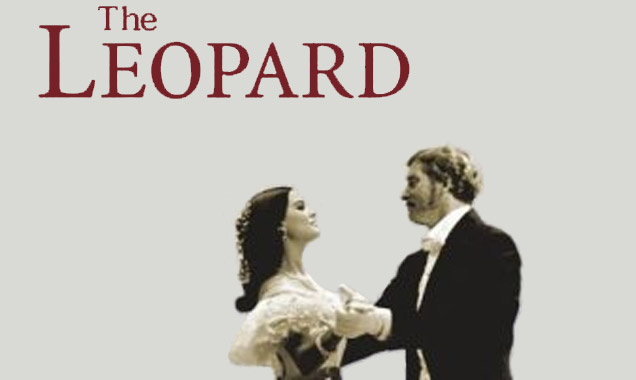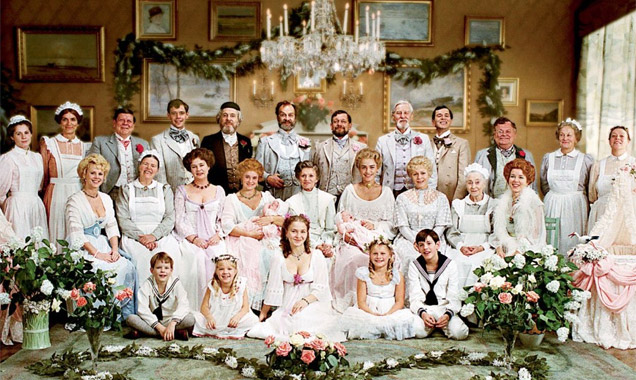Page 2 - The Top 10 Films Of All Time, According To Metacritic
By George Percival in Movies / TV / Theatre on 03 June 2014

The Leopard
Read Our Review Of The Leopard Here
Starring Hollywood leading man Burt Lancaster and the flamboyant charms of Alain Delon, The Leopard ruminates upon the fate of a noble aristocrat amidst social upheaval in 19th Century Sicily. It is a profound character study, centring upon Lancaster’s protagonist, The Prince Of Salina, as his system of values and power comes under attack from a rapidly changing society. It also boasts what is commonly considered to be one of the sexiest scenes in cinematic history, a long dance with Claudia Cardinale in a particularly striking scene of bourgeois ballroom socializing. Defined by graceful long shots indicative of erstwhile epics, Luchino Visconti’s 1963 masterwork shows the influence of Sicilian nobility unravelling and the looming threat of war impacting among the families who had long held hierarchy over the tumultuous island. At three hours in length, it suggests a laborious watching experience, but the emotional complexities at work, coupled with sumptuous choreography, leaves the film as a fervently affecting cinematic experience.

The Conformist
Like The Godfather, Bernardo Bertolucci’s taut masterpiece stands up as well today as it did upon its initial release. The Conformist, set in 1930’s Rome and Paris, details the plight of a Mussolini operative sent to assassinate an ageing professor who fled Italy after the fascist Black Shirts installed themselves as the country’s leaders. After a number of factors upset the task of the film’s protagonist, including being seduced by the professor’s wife, he is faced with an overwhelming dilemma, either to follow the wishes of the fascist leaders and kill a man who is simply standing up for what is morally right, or defy his masters and spare the life of the professor. Its breath-taking style sits alongside themes of corruption, cowardice, treachery and sexual decadence whilst elegant cinematography reminds viewers of the capabilities of cinema. Tantalizing stuff.
Sweet Smell Of Success
Read Our Review Of Sweet Smell Of Success Here
The second Burt Lancaster film to make the top 10 on the Metacritic scale, the icon stars alongside legend of comedy Tony Curtis in a film-noir abundant with cinematic pleasures and delights that belies the films subject matter of greed and corruption. Riddled with punchy dialogue and snappy one-liners that populate film-noir more so than any other genre, Sweet Smell Of Success subscribes to the ‘fast talking and high trousers’ era of American cinema. New York is portrayed with stringently unsympathetic attributes by director Alexander Mackendrick, a grotesque labyrinth of manipulation and greed, where any semblance of goodness is swiftly crushed and stamped out by the overwhelming stench of abused power. Lancaster and Curtis are superb as they attempt to out-manipulate both each other, and everyone around them. Rarely has such an unforthcoming and irksome group of people and circumstances been portrayed with such beauty, rendering the omnipresent nastiness and sleaziness with incredible allure.

Fanny & Alexander
Only Alfred Hitchcock can claim to produce psychological cinema as poignantly as Ingmar Bergman, whose insights into the infinitely complex human psyche ruminate upon the darker side of human nature in ways that are frequently disturbing. The Oscar-winning Fanny & Alexander, written and directed by the Swedish auteur, arrived rather late in the directors career, and is often overlooked in favour of his earlier pictures which include Persona and The Seventh Seal. A period piece set in in early 20th Century, the film follows two young Swedish children through a rich tapestry of childhood drama and events. It combines elements of visual and black comedy as well as a selection of darker elements that Bergman was so consistently fond of. The result is a haunting masterpiece of idiosyncratic cinema; it manages to be both haunting and mesmerizing, despite the low-key subject matter. The emphasis on philosophy means the film would never offer the populist incantations of Hitchcock’s work, yet for those ready to immerse themselves in Bergman’s often hellish world, the experience will have a deeply profound effect.
The Wizard Of Oz
Perhaps one of the most enduring pictures Hollywood has ever produced, Wizard Of Oz is a masterclass in fantastical cinematic journeys. Joyous, charming and also terrifying, the film has achieved its position of universal acclaim through a timeless quality, memorable songs, loveable characters and a visual pomp that still appeals to audiences to this day. Despite being released in 1939, the screen flourishes with a wealth of visually infatuating colour, from the intense deep reds of Dorothy’s shoes to yellow brick road and the Wicked Witch of the West’s snot green complexion. Judy Garland takes her star-making turn as Dorothy in a performance that defined her career, despite being on 16 when she accepted the role. It possesses what every brilliant children’s film should exude- an appeal that extends to adults. As such, The Wizard Of Oz will live on as an example of classic Hollywood at its very finest.
Contactmusic




